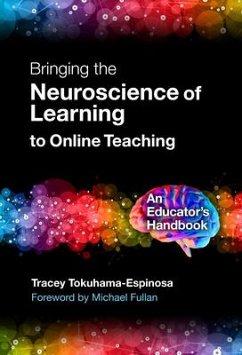
Neurodevelopment of executive functions in the student
From primary school with learning difficulties
Versandkostenfrei!
Versandfertig in 6-10 Tagen
29,99 €
inkl. MwSt.

PAYBACK Punkte
15 °P sammeln!
In my work as a special needs teacher, I work with students with learning difficulties for 1 or 2 hours a week. The majority of the students I work with show a lack of motivation towards school work and a lack of a global vision of learning. Students with learning delays frequently display specific cognitive characteristics, such as a poorly organized knowledge base, difficulties with organization, transfer and generalization, and weak associative functions1. So, I asked myself the following questions: how can we support the student effectively? What should I prioritize, given the limited time...
In my work as a special needs teacher, I work with students with learning difficulties for 1 or 2 hours a week. The majority of the students I work with show a lack of motivation towards school work and a lack of a global vision of learning. Students with learning delays frequently display specific cognitive characteristics, such as a poorly organized knowledge base, difficulties with organization, transfer and generalization, and weak associative functions1. So, I asked myself the following questions: how can we support the student effectively? What should I prioritize, given the limited time available for my intervention? How could I convey to the student a sense of pleasure and of schoolwork? So I decided to look for answers in neuroscience, neuropsychology and neuropedagogy3. Without falling into the educational illusion that neuroscience can explain and guide everything, it must be said that it does provide a scientific and up-to-date basis for teaching that is likely to enlighten practice.














